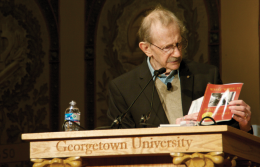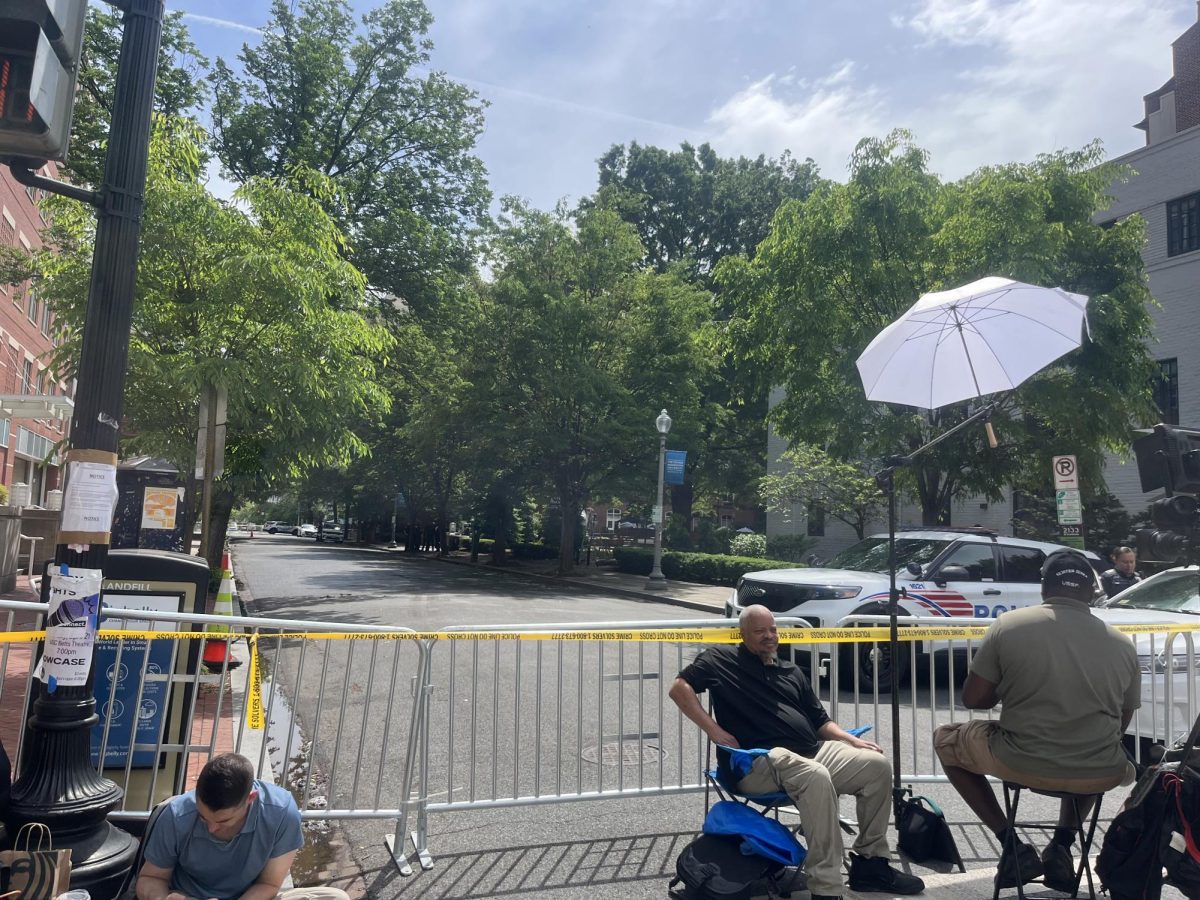
Speaking to an audience in Gaston Hall Monday night, U.S. Poet Laureate Philip Levine shared how his background as both a factory worker and professional academic has shaped his award-winning work.
Levine engaged the audience with readings of selected poems and anecdotes from his working life, which has transformed from job in a Detroit automobile factory in the1940s and 50s to a career as a renowned professor at universities nationwide.
“I decided to live on my wits,” he said.
The son of Russian-Jewish immigrants, Levine drew inspiration from his life experience, particularly his time at work in the auto industry.
“Those years were a gift because of the people, the sense of community, solidarity, love and tenderness,” he said.
Jennifer Luff, research director for the Kalmanovitz Initiative for Labor and the Working Poor, which sponsored the event, introduced Levine as one of the few authors in contemporary literature who gives voice to modern laborers.
Levine, 83, spoke negatively of the arduous nature of his factory jobs and said that it took him a long time before he felt comfortable writing about his past.
In the works he selected to read, Levine focused heavily on individual people and memories.
“I discovered that the real wealth I had was contained with the people I worked with,” Levine said.
Levine, who was appointed poet laureate in August by the Library of Congress, has received numerous awards for his work, including the 1991 National Book Award for “What Work Is” and the 1995 Pulitzer Prize for “The Simple Truth.”
Maureen Corrigan, book critic for NPR’s Fresh Air and critic-in-residence and lecturer at Georgetown, moderated a discussion with Levine after he shared his works aloud. Corrigan addressed the role that literature and poetry currently play in movements including Occupy Wall Street.
“I’m nobody’s voice but my own,” Levine said. He expressed his desire to continue to stay involved with labor rights issues despite his appointment as poet laureate. The only real difference, he pointed out, is that the new position expands his readership.
Levine explained that he began rehearsing poetry so he could stay focused while he undertook taxing manual labor. He realized later that he felt called to poetry, a revelation that kicked off a career as a poet and lecturer.
“Although my poetry doesn’t always turn out well, it’s something that I have to do,” Levine said.














